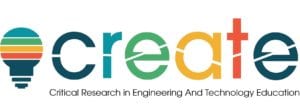
We are a research team committed to exploring diversity, equity, and creativity in engineering education.

Ahmed Osman
Researcher
Ahmed’s goal is to identify implicit factors within engineering education to make the learning environment equitable and to strive for diversity within engineering. His current work consists of thematic analysis to steer thoughts and deepen analysis of faculty practices and beliefs.

Eric Cuellar
Researcher
Eric is passionate about optimizing the creative capacity of engineering design teams and fostering creativity in education. His research interests include the ideation process, metrics for creativity, idea selection methods, diversity in engineering, and equitable design practices.

Ben Lutz
Advisor
Ben’s research interests include critical pedagogies; efforts for diversity, equity, and inclusion in engineering, engineering design theory and practice; conceptual change and understanding; and school-to-work transitions for new engineers. Ben started and mentors the CREATE team.
Research Poster
Motivation
- Student evaluation of teaching (SET) is an integral component of engineering education
- Evaluation practices may influence pedagogical decisions
- Understanding faculty beliefs about evaluations may help improve questions and practices
Methods
- Conducted interviews with 29 engineering research faculty
- Used qualitative thematic analysis to examine beliefs and practices across pedagogy and student evaluation
Codebook
Pedagogy Beliefs
- Effective teaching
- Effective learning
- Motives to improve
Pedagogy Practices
- Content delivery
- Assessing student learning
Evaluation Beliefs
- Impact on career
- Validity/reliability of data
- Implicit evaluation criteria
Evaluation Practices
- Institutional feedback
- Improvised faculty feedback
Exploring Engineering Faculty Beliefs and Practices of Student Evaluation and Pedagogy
Ahmed Osman, Eric Cuellar, and Ben Lutz
Research Question
How do engineering faculty beliefs and practices about their pedagogy influence their perceptions of evaluation methods?
Key Takeaway
Universities may consider asking about Research Based Instructional Strategies and student learning practices to minimize the existing gaps in student evaluations.
Quotes
“I know that they’re used as a yardstick. I do know that everyone admits they’re probably not the best yardstick, but they seem to be still used. ‘Cause they’re not great, but they’re there, so we’ll use ’em.”
“[SETs] are highly tied to expectations of students and those expectations are norm…around the dominant paradigms. So the more you are white, male, straight, you know, etc. English speaking.”
Findings
- Disconnect between what’s being asked and what’s being evaluated
- Effective teaching requires understanding of effective learning
- Lack of clarity surrounding institutional usage of SET data may influence pedagogy decisions
Implications
- SET questions on the frequency of Research Based Instructional Strategies (RBIS) may better align what’s being asked vs what’s being evaluated
- Questions about student learning and the use of mid-course evaluations may provide greater context for faculty
- Greater clarity on SET data usage may help foster the use of RBIS in teaching while curbing behaviors used only to boost evaluation scores
aa

Acknowledgements
We would like to thank Cal Poly SURP for funding our work and our advisor Ben Lutz for mentoring us.
